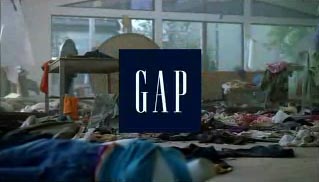Recently Ponyboy at Glassdog.com gave a fairly scathing rant about BoingBoing’s slippery slope decent from sans ads to (depending on what you consider an ad) “between nine and nineteen ad slots”. He complains that BoingBoing has sold out while at the same time it continues to pretend nothing has changed.
I can’t really compare myself with BoingBoing in influence or blog credibility (if there is such a thing) but I feel like I can totally relate. For years I’ve had a pretty big draw in my Stairway to Heaven Backwards site, but I’ve always resisted putting ads on it. I felt that it would be selling out. But the thought persisted. Perhaps I even used BoingBoing as my role model. If they can do it, I justified, then so can I. It didn’t take long until I convinced myself that a few context sensitive ads wouldn’t actually hurt that much anyway. Besides I would only be collecting money to help pay for the site.
And that’s great for the time being. Right now I can justify the ads by telling myself they are here for the greater good of keeping the site alive. However when I finally raise enough money to pay for hosting and DNS costs, I have to admit that I won’t want to take the ads down. It’s just too easy not to.
I think BoingBoing is in the same boat. They started out with the best of intentions; they really believed that their ads were only there to cover costs; they really believed that they were a necessary evil in their fight for survival. But once the ads were up they realized that hey, tasteful advertisments on a site are not the worst thing in the world. In fact maybe they are even setting an example of how the websites can survive and even generate money after dot com bubble burst.
Put yourself in the publishers place. Money is tight and yet you must find away to make ends meet. After some agonizing you realize that ads on your site are the best route to take but you feel like you have to sell your soul in the process. You close your eyes and take the plunge but then when the dust settles you realize advertising is not so bad. You still have that strong justification that “it’s all for the greater good” running through you head. Then the day comes that everything is paid for, the site has become self sufficient and you can rest easy knowing your baby is safe. But the money continues to roll in. It’s at this point that something inside you changes. Your very soul turns around and says, “Hey this extra cash will allow me to finally get that BowFlex™ I’ve seen on late night TV.”
I have to agree with Ponyboy that BoingBoing probably should admit to themselves the real reason the ads are there to stay. It has caused me to reevaluate my thoughts on the subject and I’ve realized that the writers of BoingBoing, like me, know that when all is said and done — 90 days on our new exercise equipment will mean bodies that are sculpted to perfection.
